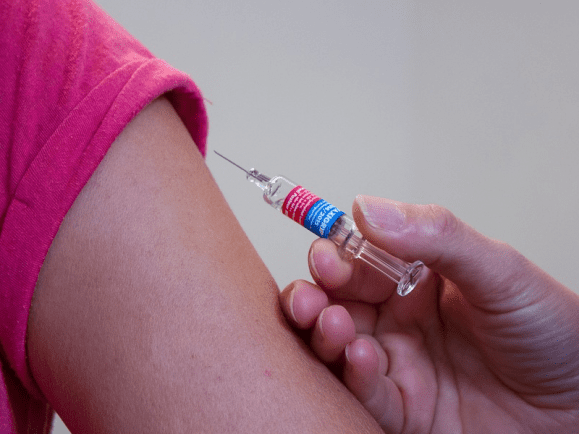
Vaccines have made one of the most significant impacts on society and are one of the medical communities most vital technologies. Each year, vaccines prevent more than 3 million childhood deaths around the world from diseases like tetanus and measles. Despite these benefits, vaccines still carry a negative connotation. Many parents are undereducated about what vaccines are and the science behind them, leaving them feeling unsure if vaccinations are safe. There are many misconceptions about vaccines, but with the proper knowledge, parents can feel at ease.
How do vaccines work?
The diseases vaccinations prevent can be deadly. While the current statistics of a child contracting things like pertussis or measles is low, you never want them to be lacking the protection should herd immunity fails. Herd immunity occurs when a sufficient percentage of a population is immune to an infection, lessening its ability to spread. Think of it this way: you make sure to buckle your child in their car seat even though you do not plan to be in an accident.
Babies are born with immune systems that can fight most germs, and children are exposed to thousands of germs a day. However, there are some deadly diseases they cannot handle, which is why vaccines were developed. Vaccines are used to strengthen your baby's immune system. Vaccines reduce a child's risk of infection by working with their body's natural defenses to help safely develop immunity to the disease. Vaccines use a small amount of the antigens to help your child's immune system to recognize the condition and learn how to fight it. Vaccines will not make you sick while still granting you immunity to the disease.
What ingredients are in vaccines?
All the ingredients in vaccines play a critical role in ensuring that they work. However, some parents become nervous when reading the vaccine label. Most of the ingredients that raise the alarm, however, are already naturally occurring in the body and re not harmful to humans. For example, formaldehyde is used to prevent contamination by bacteria during the manufacturing process. The amount of formaldehyde in a vaccine, though, is less than is already found in a child's body. It is also readily found in the environment, preservatives, and household products. Talk to your doctor about any ingredient that makes you nervous or search out reputable sources. The CDC has a detailed list of all ingredients found in vaccines and what their role is.
What side effects are expected?
When you give your child any medication, a risk of some side effects is present. It is the same for immunizations—some side effects like low-grade fever and pain at the injection site may occur. Long-lasting or severe side effects are extremely rare, though. The truth is that a child is far more likely to be seriously injured by the disease than a vaccination. There is a publicly available database called the Vaccine Adverse Events Reporting System that keeps track of all reported side effects. Parents can research themselves before making a decision.
There is a small group of doctors that claim autism is a side effect of vaccines, but there is no scientific proof. The research they presented turned out to be falsified; however, the rumor still prevailed throughout society. Symptoms of autism show up early in life around the same time vaccines are given, which leads parents to draw their own conclusions. Research shows that there is no link between the two and that vaccines are safe. More information about vaccines can be found on the CDC website.
Is the schedule of vaccines safe?
More shots are given to babies now than when most parents were kids. However, this does not overwhelm a baby's immune system, and it is perfectly safe to give children several vaccines at once or within a small-time frame. Antigens in vaccines are not as severe as the antigens we face daily through breathing, eating, and touching things. Vaccines give baby immune systems a chance to work more efficiently. Giving children several shots at once will mean fewer doctor visits. This saves time and money. It also is a lot less traumatic for the child. Choosing a schedule for your child means that they risk getting the disease from someone they know, spreading it, and suffering the consequences. It also may not give the vaccine enough time to work, as some vaccines take weeks and multiple doses to develop immunity.
Vaccines can prevent infectious diseases that once killed and whipped out entire populations. Without vaccines, our society would not be here today. It is always better to treat a disease than it is to prevent it. Vaccinations are highly effective and safe, so there should be no concern for getting the child immunized.

